Oceans
-
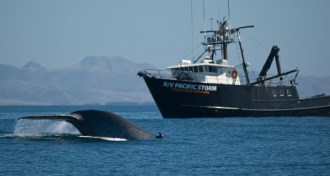 Oceans
OceansWhales and ships don’t mix well
A 15-year study of blue whales off California has found that major shipping lanes cut through feeding grounds.
-
 Ecosystems
EcosystemsOffshore wind farms may be seal feeding grounds
Harbor seals were tracked visiting offshore wind farms, probably to find food, researchers say.
-
 Oceans
OceansSaharan dust explains Bahamas’ paradoxical existence
Windswept dust from the Sahara Desert may fertilize bacteria that built the Bahamas.
-
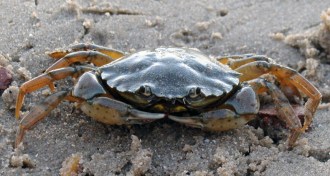 Environment
EnvironmentMicroplastics lodge in crab gills and guts
Crabs can absorb microplastic particles through their gills and by eating polluted mussels.
By Nsikan Akpan -
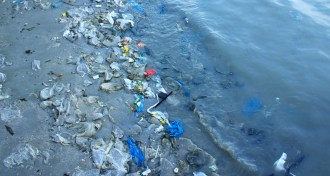 Environment
EnvironmentPlastic goes missing at sea
A survey of the world’s oceans finds far less polymer trash than expected, and researchers don’t know where the rest of the plastic is.
By Sam Lemonick -
 Oceans
OceansDusk heralds a feeding frenzy in the waters off Oahu
Even dolphins benefit when layers of organisms in the water column overlap for a short period.
-
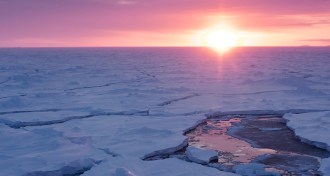 Climate
ClimateViolent storms may shatter sea ice
Tall waves’ effect on sea ice hints at troubled water in the future.
By Beth Mole -
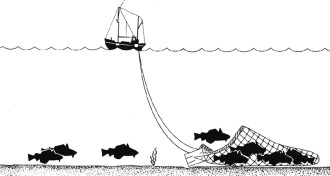 Ecosystems
EcosystemsDeep-sea trawling threatens oceans’ health
Dragging large nets along the seafloor to catch fish cuts organic matter and biodiversity in half and may threaten all of the world's underwater ecosystems.
-
 Oceans
OceansDeepwater Horizon methane lingered longer than thought
Microbes may not have consumed methane from the 2010 Deepwater Horizon oil spill as fast as previously thought.
-
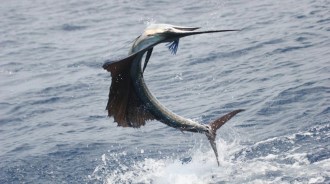 Animals
AnimalsSecrets of a sailfish attack
The large, long-nosed sailfish use their rostrums more like a sword than a spear to attack prey.
-
 Climate
ClimateReef fish act drunk in carbon dioxide–rich ocean waters
In first test in the wild, fish near reefs that bubble with CO2 lose fear of predators’ scent.
By Meghan Rosen -
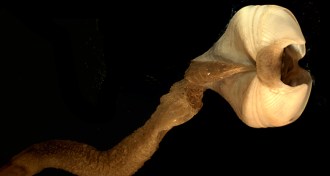 Oceans
OceansThe surprising life of a piece of sunken wood
Timber and trees that wash out to sea and sink to the bottom of the ocean hold a diverse community of organisms.